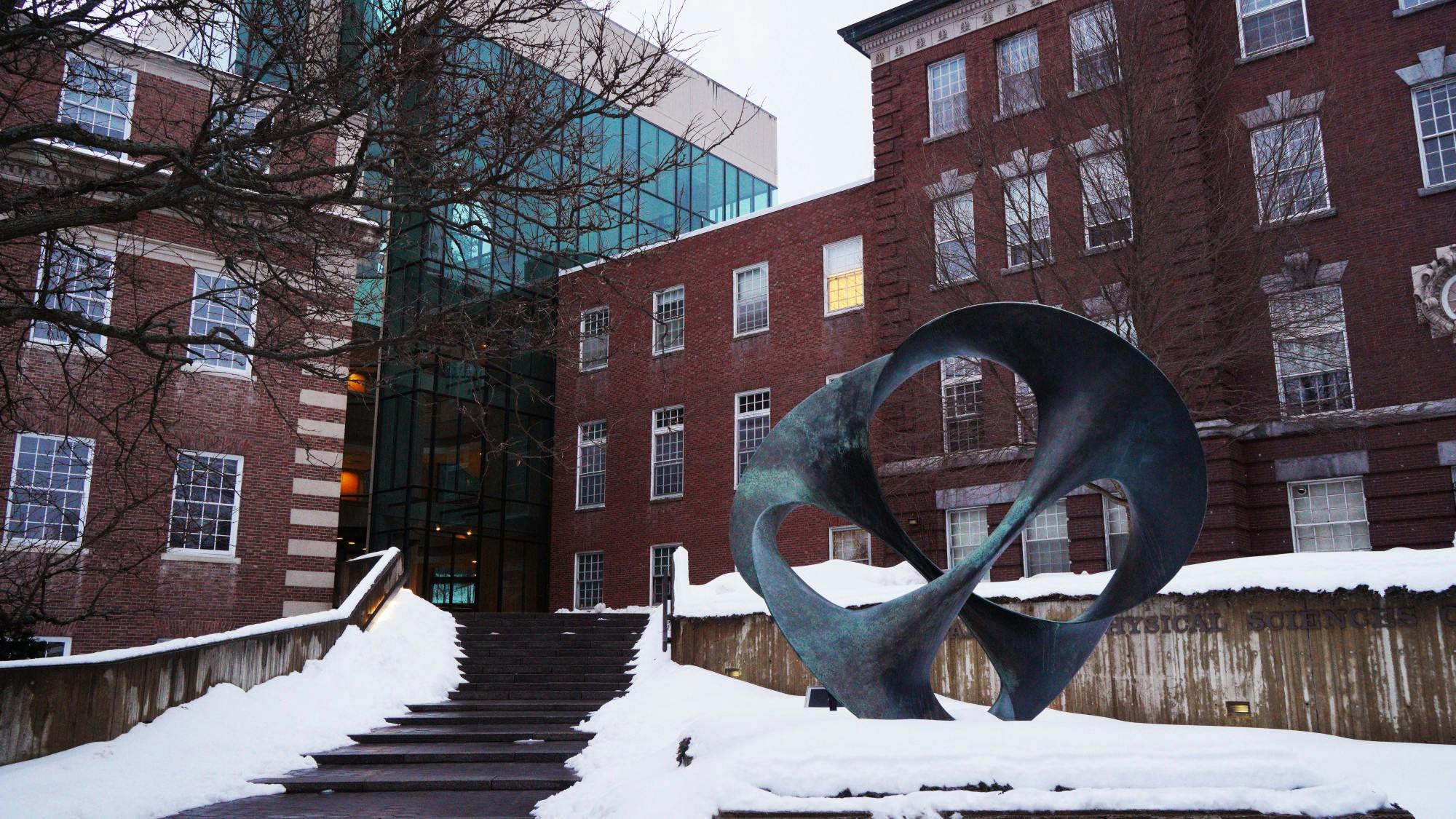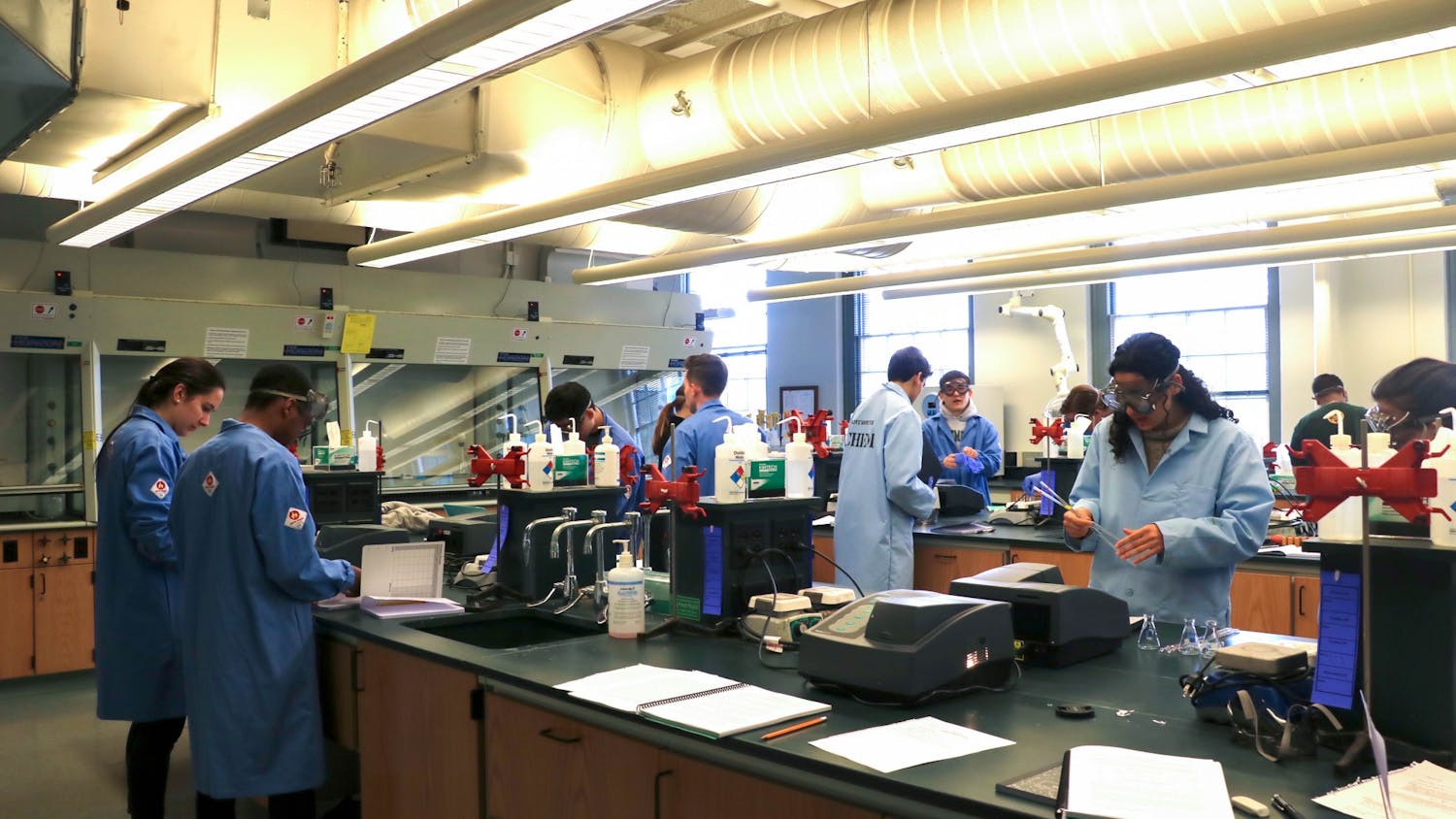On April 20, the Dartmouth Stamps Scholars program announced 10 new scholars from the Class of 2023. According to the Dartmouth Stamps Scholars program website, the program awards research-based scholarships to a selection of rising juniors each spring term and provides “up to $10,000 of funding per year for two years.” The Stamps Scholarship program, which is run in partnership with the Strive Foundation, is currently partnered with 37 schools, according to the foundation’s website.
This year’s application process began in February, when prospective applicants submitted a five to seven page research proposal and a letter of recommendation from their chosen faculty advisor, according to multiple Dartmouth Stamps Scholars. After submitting their application, the Scholars said there were two rounds of interviews: a 30-minute virtual interview with Dartmouth’s selection committee and a second with a member of the Stamps Scholarship program’s leadership.
In speaking about this year’s Scholars, English professor and faculty director of Dartmouth’s Stamps Scholars program Christie Harner noted “how interdisciplinary the interest is, in terms of students coming from across the College from very different backgrounds, and thinking about research in very different ways.”
“There are students who are working in lab-based STEM projects where they’re very much in a scientific lab, there are other students who are working through organizations and agencies and there are other students who are doing more creative or humanities research where they’re working with archives in film or literature,” Harner said.
Daniel Westphal ’23, a physics and astronomy major modified with computer science, is one of the newly selected Stamps Scholars. Westphal’s research project, titled “A statistical analysis of microburst dependence on whistler mode chorus wave activity,” aims to “better understand interactions between plasma waves and high energy particles within Earth's radiation belts,” Westphal explained.
Westphal said his interest in astronomy and his motivation to apply for the Stamps Scholars program both began during a research experience with his faculty advisor, physics and astronomy professor Robyn Millan, at the beginning of his freshman fall. While Westphal said his Stamps project is similar to what his advisor studies, he described the project as a “logical progression” that is taking him in a “novel direction.”
“Before, I was working on emulating a few things that previous Dartmouth students had done in the research field with a larger data set to see if results were consistent or one-off events, whereas my new project is something that has never really been done before,” Westphal said.
Westphal said he is still uncertain exactly how he will use his funding because of the pandemic. If things return to “normal” relatively soon, Westphal said he would like to travel to academic conferences, like meetings hosted by the American Geophysical Union, as well as to Montana State University to work on the construction of a mini-satellite that will be used to collect data for his project. Alternatively, Westphal explained that he may put the funding towards new software and hardware to assist in his data analysis.
Jesse Ferraioli ’23, a philosophy major and environmental studies minor, is another newly selected Stamps Scholar with a project titled “Water ethics: The valuation and governance of indigenous water resources in North America.” The motivation for Ferraioli’s project, she explained, stemmed from a summer 2020 internship experience at the Environmental Protection Agency, where she noticed “the way indigenous values clash with [U.S.] regional governance over land and water use … and how that contrasted with Canada and its incorporation of indigenous knowledge in its water policy.”
While Ferraioli had already been conducting research in this area thanks to a social justice research grant through the philosophy department, she said that the Stamps Scholar funding will allow her to consider expanding her project to incorporate more travel and various experts “at Dartmouth and beyond.”
“I’d like to work with a bunch of different professors at Dartmouth and expand the scope of the project, as the topic is very interdisciplinary,” she added.
In the meantime, Ferraioli said she has been working to “lay the groundwork” for her project by reading past research, reaching out to professors and experts and communicating with agencies such as the Center for Environmental Law and Policy in Seattle and the Water-Culture Institute in Santa Fe, New Mexico in hopes of participating in an internship or extended stay.
Ferraioli added that she hopes to be able to give back to future Stamps Scholars and the Dartmouth community by using the knowledge that she garners from her experience as a Stamps Scholar to assist and guide other students who have similar interests and may also be pursuing research in the area.
Theodore Press ’23, a chemistry major and art history minor, also received the scholarship. Coming to Dartmouth undecided on a major, Press explained that the opportunity to conduct research with chemistry department chair and professor Dean Wilcox his freshman fall cemented his interest in the field and motivated him to apply to the Stamps Scholars program.
Press’s research project, titled “Medicinal chemistry: studying SOD-1’s link to ALS, Dementia, and Alzheimer’s with ITC,” stemmed from work he was already doing in Wilcox’s lab studying how metals bind to proteins and cause certain mutations linked to ALS and Alzheimer’s, Press explained. While his past research dealt with performing experiments under a graduate student advisor, Press said he will now be focusing on conducting his own experiments.
Moving forward, Press said he looks forward to using the Stamps funding to travel and attend conferences, like “the Penn State inorganic biochemistry conference,” as well as to potentially traveling to work at institutions with professors who specialize in electrophoresis — a laboratory technique that separates DNA, RNA or proteins by electrical charge or size — and protein expression , two techniques that he said he would like to learn.
This year’s Stamps Scholars are Spencer Allen ’23, Amanda Calhoun ’23, Jesse Ferraioli ’23, Emily Hester ’23, Katherine Lasonde ’23, Nicholas Mancini ’23, Theodore Press ’23, Vi Tran ’23, Ananya Vaidya ’23 and Daniel Westphal ’23.




